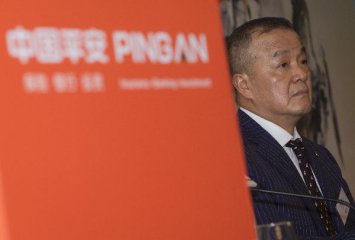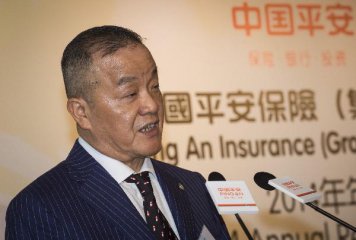Chinese insurance giant Ping An Insurance unveiled its long-term research and development (R&D) investment plan Thursday, vowing to set aside as much as 15 billion U.S. dollars in the area over the next ten years, The Paper reported.
Chen Xinying, Ping An's deputy CEO and chief information officer (CIO), disclosed during an event held Thursday that the company has planned to invest one percent of its annual revenue in the development of fintech and healthcare technologies over the next decade.
"Ping An has invested a total of 7 billion U.S. dollars in R&D during the past decade and expects to more than double that figure over the next ten years," said Chen.
In response to investors' concerns about the return on those R&D investments, Chen said making money was not the company's top priority when it made investments. However, she also admitted that the company didn't expect these R&D investments to affect its overall profitability.
"Ping An's net profit has been growing steadily over the past decade," said Chen. "We must ensure a sustainable profit growth in the future."
Yao Bo, Ping An's chief financial officer (CFO), also reassured investors by saying that the company would conduct cost analysis before making R&D investments and timely terminate investment projects when things go wrong.
"On one hand, we are pursuing long-term benefits at the expense of some short-term interests," he said. "On the other hand, we are also closely watching the cost of these projects."
The company expects new technologies to play a critical role in the development of its major businesses, including financial services, healthcare, auto services, real estate and smart cities.
So far, the company's online fintech service platform, OneConnect, has served 483 commercial banks, 42 insurance companies and 2,400 financial institutions of other types in China.
Its online healthcare platform has also achieved a huge user base of over 250 million and is preparing for an IPO in the Hong Kong stock market.
The company's smart city division is now running up to 115 projects in over 60 cities across the country.
Chen Xinying, Ping An's deputy CEO and chief information officer (CIO), disclosed during an event held Thursday that the company has planned to invest one percent of its annual revenue in the development of fintech and healthcare technologies over the next decade.
"Ping An has invested a total of 7 billion U.S. dollars in R&D during the past decade and expects to more than double that figure over the next ten years," said Chen.
In response to investors' concerns about the return on those R&D investments, Chen said making money was not the company's top priority when it made investments. However, she also admitted that the company didn't expect these R&D investments to affect its overall profitability.
"Ping An's net profit has been growing steadily over the past decade," said Chen. "We must ensure a sustainable profit growth in the future."
Yao Bo, Ping An's chief financial officer (CFO), also reassured investors by saying that the company would conduct cost analysis before making R&D investments and timely terminate investment projects when things go wrong.
"On one hand, we are pursuing long-term benefits at the expense of some short-term interests," he said. "On the other hand, we are also closely watching the cost of these projects."
The company expects new technologies to play a critical role in the development of its major businesses, including financial services, healthcare, auto services, real estate and smart cities.
So far, the company's online fintech service platform, OneConnect, has served 483 commercial banks, 42 insurance companies and 2,400 financial institutions of other types in China.
Its online healthcare platform has also achieved a huge user base of over 250 million and is preparing for an IPO in the Hong Kong stock market.
The company's smart city division is now running up to 115 projects in over 60 cities across the country.





















Latest comments